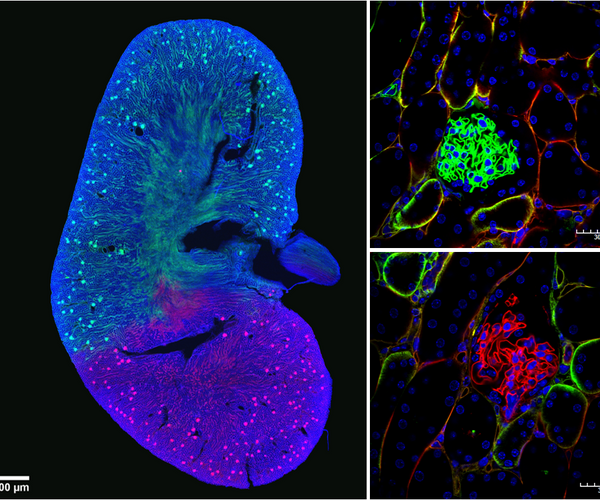The Zhang lab studies the renal physiology and pathophysiology. The lab uses an integrative approach combining classical physiology & biophysics techniques, such as micropuncture and microperfusion, and cutting edge cell & molecular biology tools, such as single-cell RNA sequencing and genetically engineered animal models to address fundamental questions and explore potential translational targets for a variety of kidney disorders, including acute kidney injury, chronic kidney disease, and graft dysfunction following kidney transplantation. Her research program has been supported by prestigious fellowships and grants, including the American Heart Association Pre-Doctoral Fellowship, the American Society of Nephrology Ben J. Lipps Post-Doctoral Fellowship, the American Society of Nephrology Carl W. Gottschalk Research Scholar Grant, and NIH-NIDDK R01 Grant.
Five selected publications:
- Zhang J et al. Role of the Macula Densa Sodium Glucose Cotransporter Type 1-Neuronal Nitric Oxide Synthase-Tubuloglomerular Feedback Pathway in Diabetic Hyperfiltration. Kidney Int, 2022. PMID: 34843754.
- Zhang J et al. Knockout of Macula Densa Neuronal Nitric Oxide Synthase Increases Blood Pressure in db/db Mice. Hypertension, 2021. PMID: 34657443.
- Zhang J et al. A Two-Stage Bilateral Ischemia-Reperfusion Injury-Induced AKI to CKD Transition Model in Mice. Am J Physiol Renal Physiol, 2020. PMID: 32567350.
- Zhang J et al. New Mechanism for the Sex Differences in Salt-Sensitive Hypertension: the Role of Macula Densa NOS1β-Mediated Tubuloglomerular Feedback. Hypertension, 2020. PMID: 31865794.
- Zhang J et al. Macula Densa SGLT1-NOS1-Tubuloglomerular Feedback Pathway, a New Mechanism for Glomerular Hyperfiltration during Hyperglycemia. J Am Soc Nephrol, 2019. PMID: 30867247.
